Over a decade ago, you’d think social media was a mere trend, like anything on the internet. Friendster and Myspace, for example, were significantly popular until they fell off. And now, Facebook, along with Twitter, has been around for years without showing any signs of slowing down.
[playht_player width=”100%” height=”175″ voice=”Mark”]
Instead of a trend, it’s become a premier spot for sharing information. It has become a vital part of every internet user, not just for sharing but for communication as well. Everyone checks it daily, either to send a message or check new content.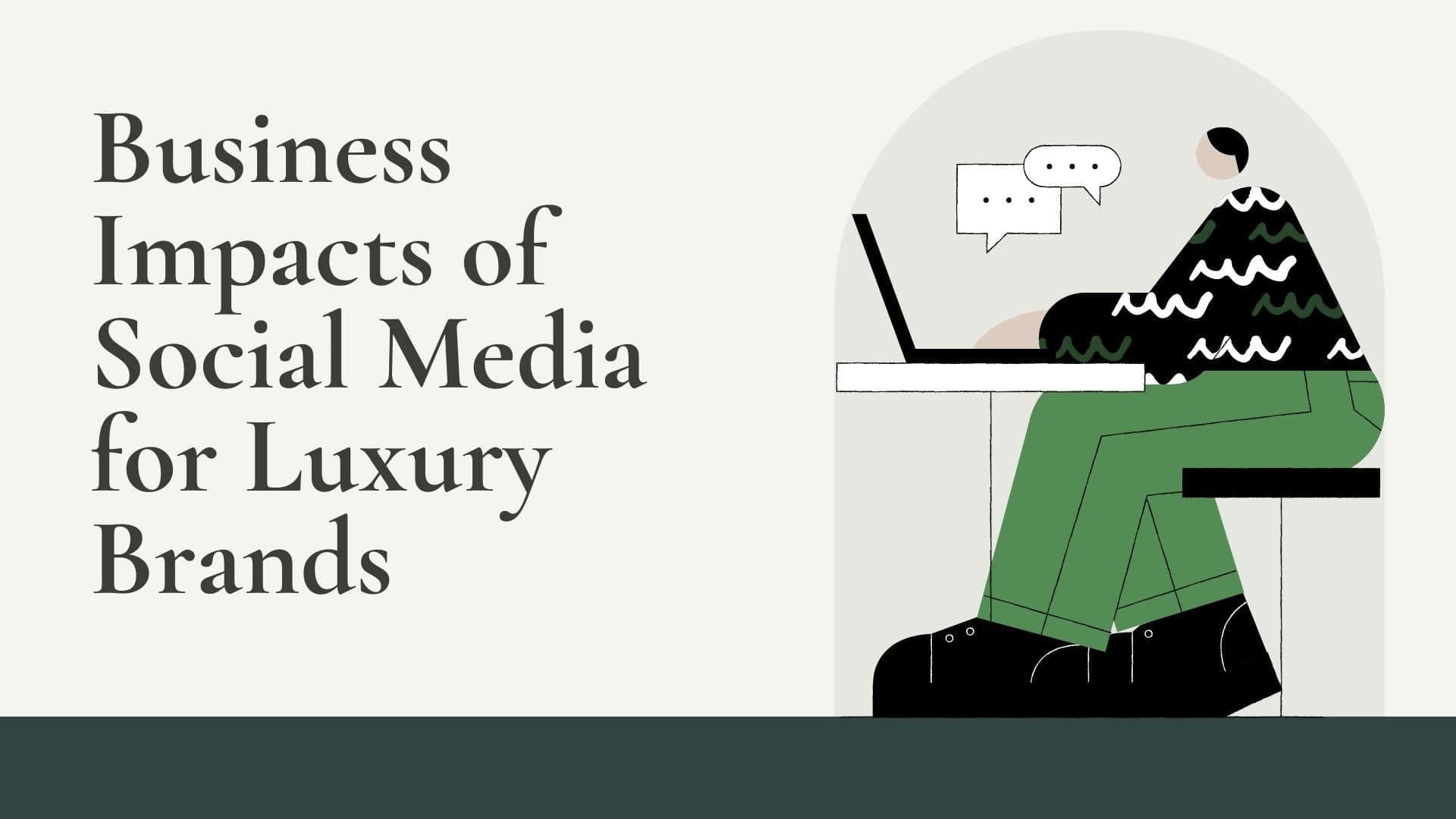
Hence, millions of individuals all over the world are influenced by social media. By having several users, it’s become a platform for connecting and uniting people worldwide.
And so, brands are taking advantage of this opportunity to market and reach out to prospects through social media. Facebook, Instagram, Twitter, and YouTube are the most common examples.
A prominent percentage of the upper class use social media to follow companies and access luxury products. We’ll continue discussing these in-depth in the subsections below.
Defining Luxury and Luxury Products
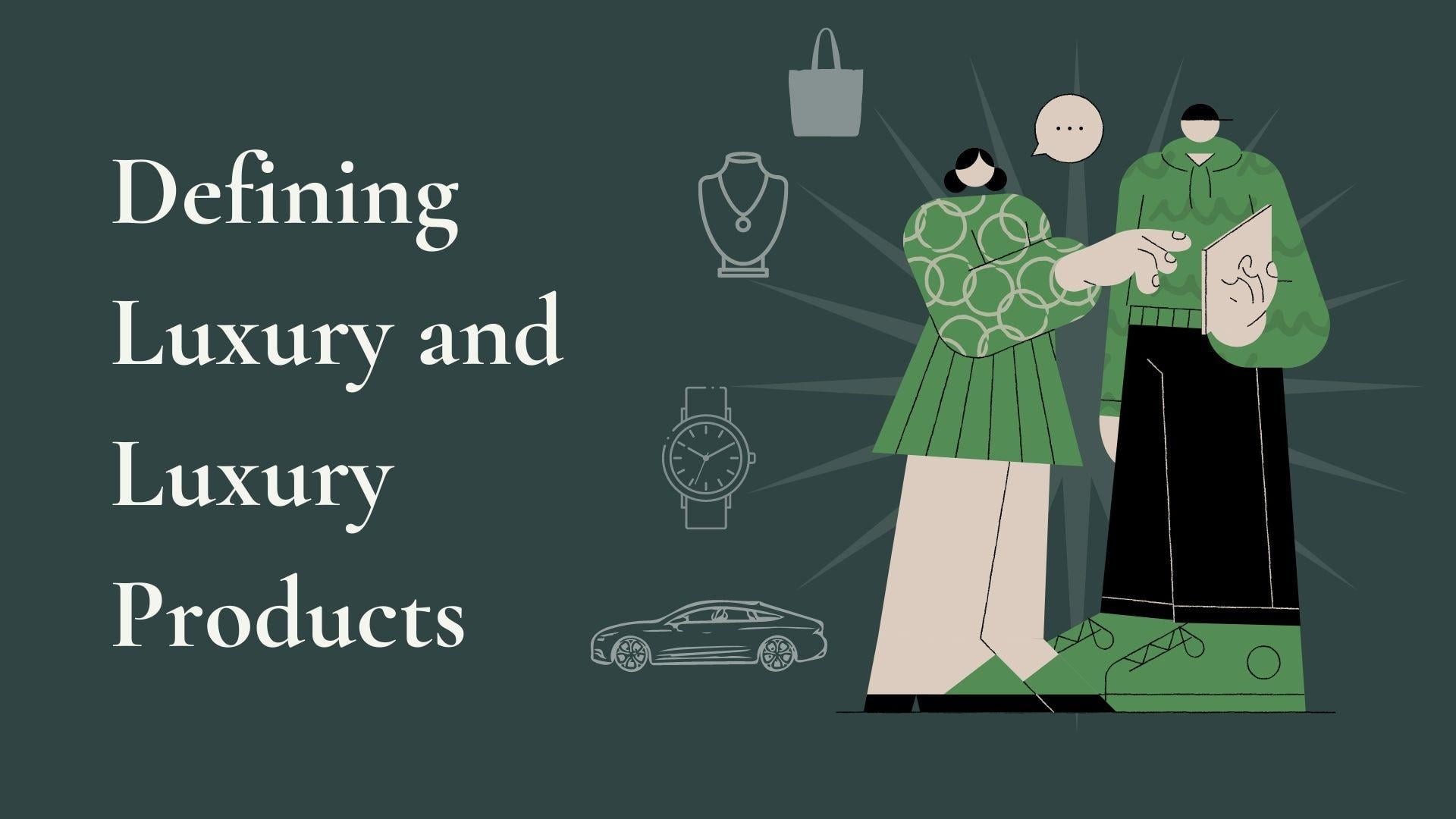
Luxury has always been known as something that goes beyond the realm of necessity. In other words, it’s something you don’t need but can afford. Therefore, there is no solid classification of what is luxurious and what is not.
However, even if luxury does equate to necessity, the product must still be functional. The problem is that luxury products can be more situational or niche than functional. But not many consumers mind because they pay for the luxury item’s prestige, not its functionality.
Because luxury products are bought for their status, consumers want to make sure they get their money’s worth. And in what way is that done? That’s through the product’s exclusivity.
In other words, it should be clear that the product isn’t easily obtained by ordinary people. Even if it’s similar to other products, it has to be distinguishable and unique. At the same time, its uniqueness should be tied to its brand name.
Examples of Luxury Products
Jewelry
Jewelry in itself is a luxury since time immemorial. The elite of the elite possessed jewelry, especially diamonds. Hence, people who parade diamonds daily exude an air of class and luxury.
There are different types of diamonds depending on their purity. But they are also classified based on their grades among the 4 Cs. Every one of those were all mined diamonds.
But lab grown diamonds have surface and are now becoming popular, even as a luxury item. Diamond studs, tennis bracelets, and wedding sets, every accessory you can think of can use them.
What is a lab grown diamond? It’s a diamond that’s been produced in a laboratory and boasts of being ethically sourced. Unlike mined diamonds, lab grown diamonds don’t endanger the environment or the lives of miners.
Just like mined diamonds, however, lab grown diamonds are authentic and graded the same way. Just the jewelry’s craftsmanship tells you there’s no room for doubt about its authenticity.
Luxury Cars
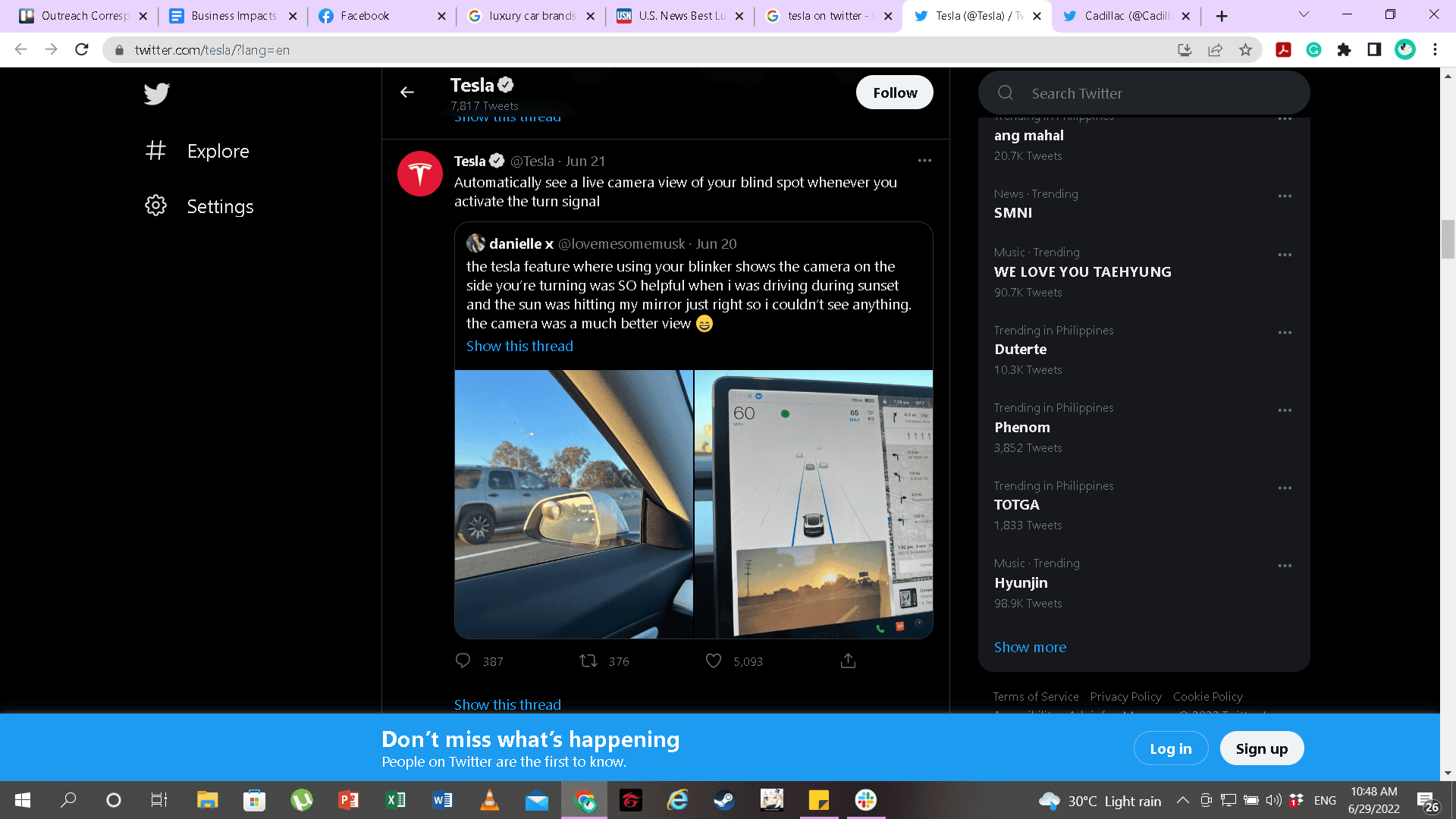
When it comes to luxury cars, the term “luxury” can refer to its comfort and convenience as much as its prestige. Everything used to make it is premium materials and state-of-the-art technology.
They also have safety features that you won’t often find in non-luxury vehicles. This is quite a bonus because you’re not only paying for the luxury status but also your safety. Tesla, for example, installed a camera where you can view your blindspots.
Aside from that, luxury vehicles also have top-notch cooling and heating systems inside. Don’t be surprised if you find one with a heated steering wheel and a freezer too.
Luxury Watches
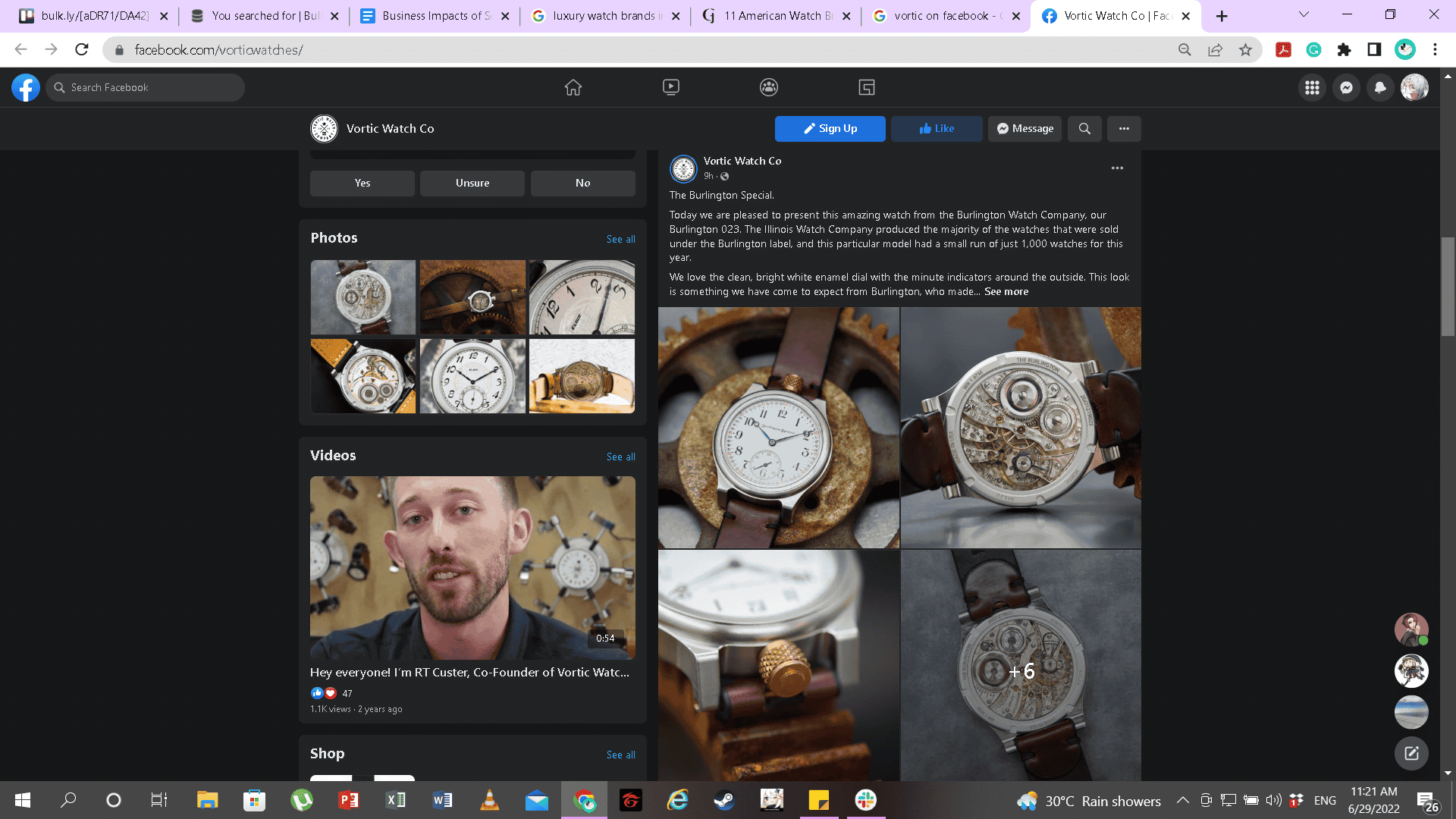
In the 2020s, it’s a fast world where everyone is in a rush to get through their daily lives so keeping track of time is more essential than ever. And while there are several inexpensive watches around, luxury watches never go out of season.
Even with phones telling time, luxury watches are still preferred by the elite because of their elegance and rich history. Votic Watch, for example, creates vintage-style watches that are good enough to become heirlooms.
Traditional Marketing vs. Social Media Marketing
Traditional Marketing and digital marketing share the same goal. That’s to reach their target audience and convert them into consumers. Aside from that, their mediums of transmitting these marketing messages are entirely different.
Let’s discuss the difference between them in a more in-depth manner.
What is Traditional Marketing?
Traditional marketing uses offline marketing methods, like magazines, newspapers, and billboards. Direct mail, phone calls, and radio are all part of traditional marketing as well.
Traditional marketing is one of the oldest forms of marketing but also one of the most research modes of marketing. Hence, traditional marketing is by no means obsolete. Instead, it’s a tried and true method that marketers can lean on.
Every person encounters some kind of traditional marketing daily, like passing by billboards on your way to work or school. So we can say that traditional marketing is important in reaching local audiences. They stay around for a long time if they’re tangible and can reach anyone in the area.
What is Social Media Marketing?
Social media marketing is a part of digital marketing. Social media marketing is about conveying your message to your audience through the features of social media. For example, paid social media ads and posting content for your followers.
Of course, this involves having a good social media profile for people to visit.
Social media marketing has become popular during the past years because of the technological shifts around us. Even the consumer culture has changed drastically in the face of digital marketing.
For instance, when scrolling past Facebook posts, you encounter videos from influencers you follow. Those influencers market their sponsors’ products which is a form of social media marketing.
Social media marketing has its benefits compared to traditional marketing. It’s more cost-effective because your followers can keep sharing your content. It’s easier to reach target audiences worldwide as well.
What Are the Business Impacts of Social Media in the Luxury Market?
The efficacy of social media marketing is a topic of considerable research to this day. It’s still a widely discussed and deliberated study when you look at its existing body of literature.
Many have discussed the general issues of social media marketing (SMM), but not much on its effectiveness on luxury brands. By understanding its effectiveness, businesses can strategize and create opportunities online.
For example, social media marketing is known to be cost-effective and efficient. So it’s easy for luxury brands to disseminate information about their new products at a cheaper price.
Below are the impacts that social media marketing has done on the luxury market.
Social Media Increases Your Reach
As a business, you’d want to reach your target audience, then expand to other types of customers. Social media simplifies that process because it increases your reach. Every country has millions of users and you will be able to cross their paths.
With social media, you can post images and different kinds of content for your followers. And your followers can keep sharing your content, triggering a chain reaction. This is especially true if your content becomes viral.
Spreading Brand Awareness
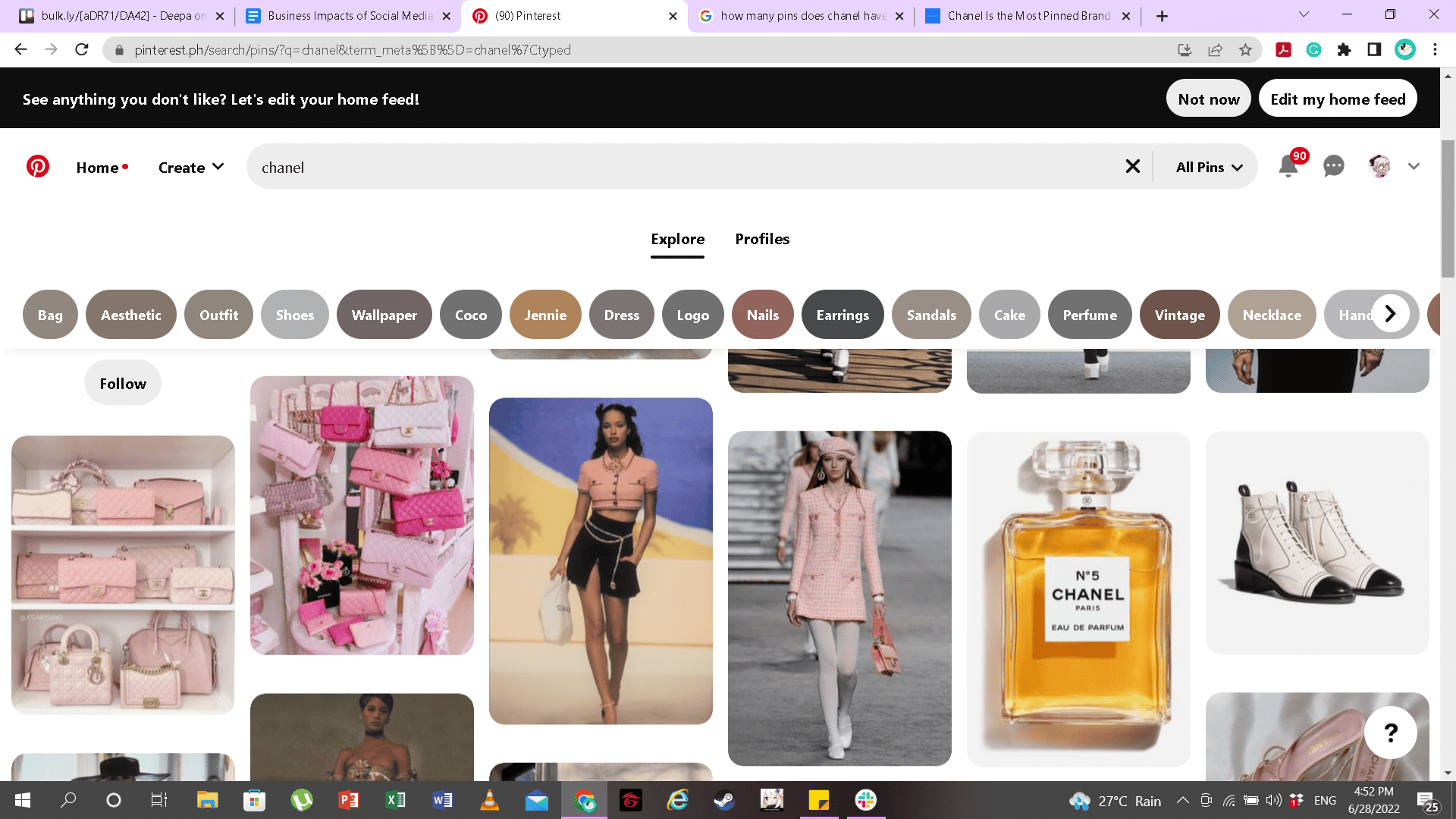
As social media expands your reach, more people are exposed to your brand. Luxury brands are supposed to maintain their prestige by being exclusive. But as a business, you’d want to spread awareness of your brand to draw in the right customers.
Your brand image is important because what you stand for reflects your consumers’ values. At least, that’s how they project onto the brands they patronize.
Spreading brand awareness also complements reaching a bigger audience. Consumers will keep being drawn to your brand image as you reach more of them.
Better Customer Retention
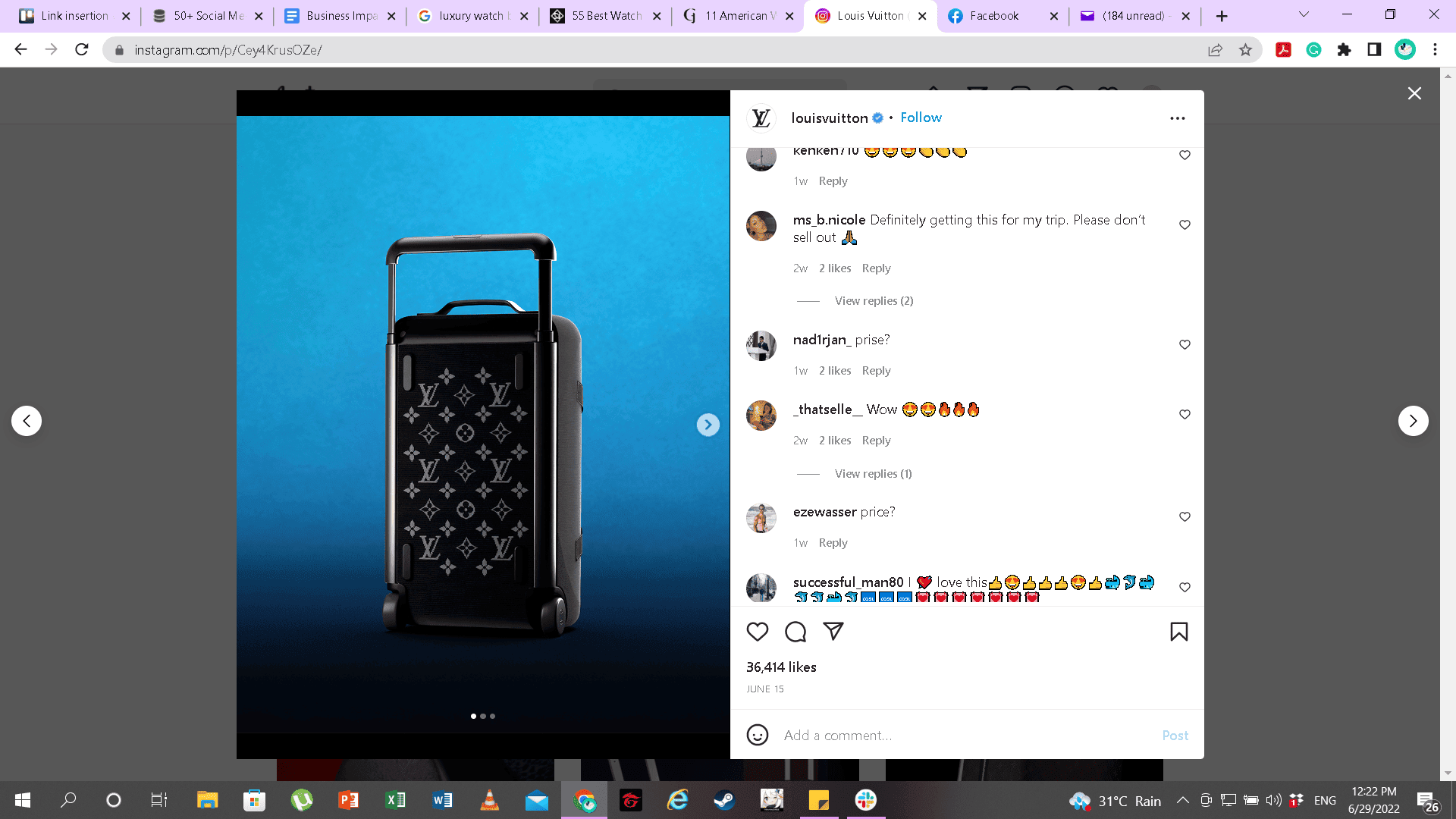
Social media helps you have better customer retention through two things. Those are through customer reviews and building brand loyalty.
Social media has enabled better supplier-customer interaction. Consumers can voice their opinions on your luxury products. And you can keep improving based on their input.
If you cater to custom orders, social media makes communication more efficient. Giving your customers a smooth experience will ensure they’ll return. Hence, you’re a step to building their brand loyalty.
With brand loyalty, your customers are sure to patronize your services again. And they will also recommend your services to their circle of friends and acquaintances.
How is Social Media Marketing Used for Luxury Brands?
Social Media Brings the Luxurious Experience Online
There are millions of wealthy internet users on social media. This fact alone should prod marketers to strategize and create techniques to exploit the luxury markets for their brands. While there’s much to gain with this approach, its success is reliant on the roadmap you’ve charted in engaging contemporary consumers.
Unique brand features or experiences can be converted into social platforms. This way, you don’t just sell a product online, but also the exclusive experience. It’s not easy for most high-end brands to translate their unique experiences online.
However, social media has evolved enough to at least complement the experiences of such deluxe brands. And this tactic is effective because consumers need unique encounters with luxury brands. Their online experience should be on par with their real-life experience in luxury stores.
What you should look out for with this approach is creating a dissonance between your brand image in real life and online. This happens when marketers end up representing their online business in an odd voice. Consequently, it sows discord in how clients perceive your business.
To avoid this situation, just treat social media as a part of your brand, like how consumers would view it. It should match your brand’s magnificence in the real world.
Luxury brand marketers advise pinpointing a product’s features. Then, marketing that similarity on the business website and social media. Simply put, there should be uniformity and cohesion in online and offline brand image.
At the same time, you ought to reach the customer’s expectations while maintaining a positive image of your brand. For example, the diamond industry’s products are always expected to shine brilliantly. However, being ethically sourced or eco-friendly boosts your positive image with consumers.
Social Media as an Online Business Model
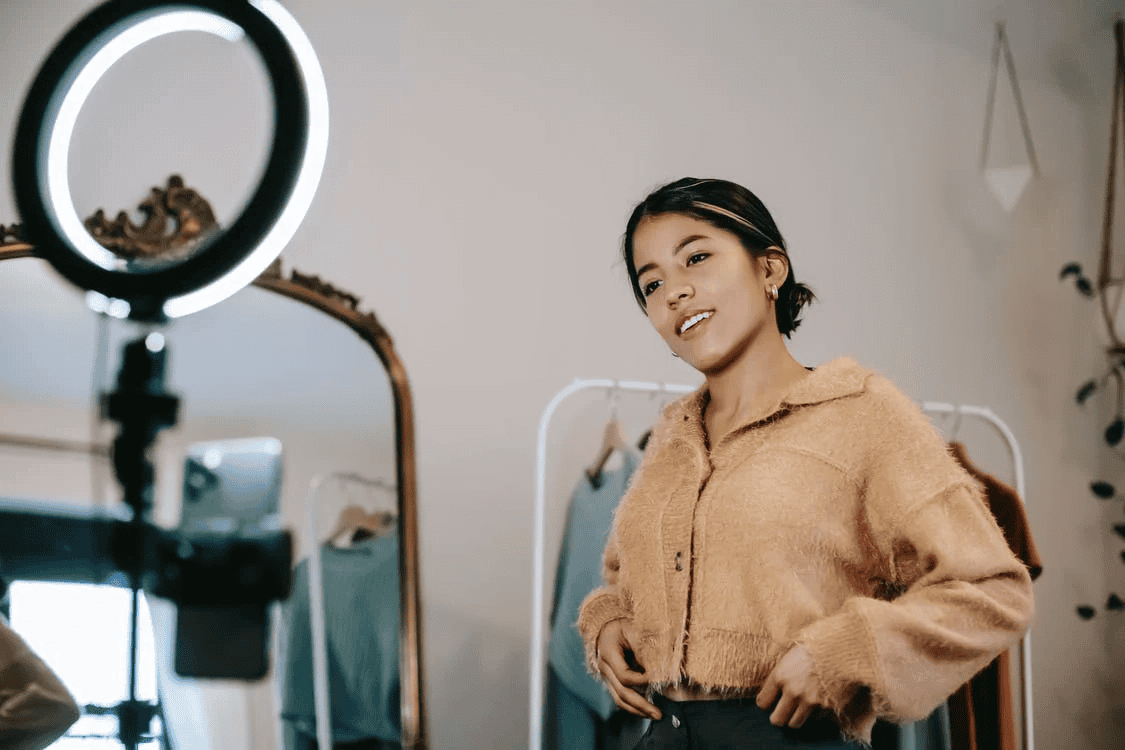
Having brought the luxurious experience online, you can adapt your business model to a social media-based one. Below are a couple of methods that luxury brands use. We also discuss in-depth how to apply those practices to your business model.
Adapting Traditional Advertising to Social Media
Some marketers force traditional advertising practices onto their social media. For example, they would make their profile picture the image of their billboard.
Communicate Your Key Message Sincerely
A more effective approach would be emphasizing the key message you want to communicate before posting it on social media. Communicating it with sincerity will attract brand loyalty.
How Will Those Two Practices Work?
For the aforementioned practices to work best, luxury brands can focus on their target audience. Social media can help you reach a big audience in a short period but numbers don’t always cut it. You need to form connections and relationships with your prospects and customers.
Having an uncontrollable advertisement of luxury brands on social media can do more harm than good. Instead, you can form connections with esteemed social media influencers to promote your products.
It’s also easy for social media users to form groups that let them interact with like-minded individuals. If the luxury brand marketers have formed close ties with the group admin or influencer, they’ll get their intended message across.
You can also take advantage of insider access as an exclusive feature. This will surely attract affluent individuals online who want to maintain their status. While social media makes customer interaction accessible, limiting interaction also boosts brand uniqueness.
Social Media Empowers Your Clients and Consumers

Social media enables consumers to share their information and experiences about your brand. This culture is exploitable for luxury brands so they can promote brand loyalty and attract prospects. So go empower your clients, give them information, and let them talk.
However, as we mentioned earlier, information must be kept in moderation to keep the feeling of exclusivity. Assess the social media Return on Investment (ROI) to ensure that your approach is raking in the desired results.
Final Thoughts on Social Media For Luxury Brands
The concept of luxury products has been around since time immemorial. As society evolves, so does the idea of what is luxurious. Over time, the way luxury brands were marketed also changed.
From traditional marketing, they’ve started using social media for online marketing. While they’re able to reach a wider audience, it conflicts with the goal of luxury brands to remain exclusive. However, there are ways for the brand to do that while keeping the clientele well-informed.
One sure approach is to bring the real-world experience online so that clients will still feel the rarity and uniqueness of your brand. You can also forge connections with your clients to garner more recommendations from their circles.
Social media is so common that almost everyone has a social media account. Even the elite have their own, not just to stay connected with friends and families, but to share their luxurious experiences.
In summary, social media is a double-edged blade for luxury brands. You can easily build your network and reach prospects but you’re in danger of losing your prestige. Hence, it’s best to keep things controlled and in moderation.
Look forward to more content about luxury brands on social media!


